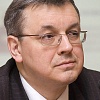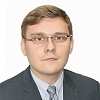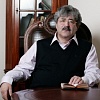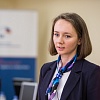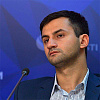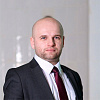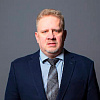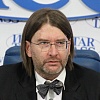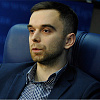Experts
Rector of the National Research University-Higher School of Economics
MA, Edmund A. Walsh School of Foreign Service, Georgetown University
Head of Program Education and Science, Deaf-blind Support Fund So-edinenie (Connection)
Editor-in-Chief of "International Affairs" journal
PhD in Engineering, Senior Research Fellow, Head of the CIS Institute Department of Eurasian Integration and SCO Development
Ph.D. in History, RIAC Expert
Ph.D. in History, Research Associate, Center for Arab and Islamic Studies, Institute of Oriental Studies at the Russian Academy of Sciences
PhD in History, Caucasus Problems and Regional Security Center at the MGIMO University
Researcher at Energy and Security Center, Eugeny Primakov Institute of World Economy and International Relations, RIAC Expert
Ph.D. in Political Science, Head, Center for Social and Political Research, Institute for the Development of Integration Processes, Russian Foreign Trade Academy, Associate Professor, Financial University
Ph.D, researcher Global HIV Vaccine Enterprise
President, Society of Caucasian Studies Experts
Ph.D. in History, Scientific Advisor of The Evgeny Primakov Center for International Cooperation, Senior Research Fellow, Center for the Arab and Islamic Studies, Institute of Oriental Studies RAS
Expert at the Institute of the Middle East, graduate of International Institute of Energy Policy and Diplomacy at MGIMO
Minister of Foreign Affairs of the Russian Federation, Chairman of Board of Trustees of RIAC
PhD in History, Director of the Institute of Latin America of the Russian Academy of Sciences, RIAC Member
Academic Director, SKOLKOVO Institute for Emerging Market Studies
Doctor of Political Sciences, Deputy Director of the Caucasus Institute
Director of the Institute of Russian, Eastern European and Central Asian Studies at the Chinese Academy of Social Sciences; Vice President of the Council on Strategic Interaction between China and Russia at the Chinese Academy of Social Sciences
Ph.D. in History; Senior Research Fellow, Center for East Asian and Shanghai Cooperation Organisation Studies, MGIMO University under the Ministry of Foreign Affairs of the Russian Federation; Associate Professor, School of International Affairs, Faculty of World Economy and International Affairs, Higher School of Economics National Research University
PhD, Project Coordinator of “Greece, Cyprus, Egypt & Israel: Opportunities and Restrictions of a Mediterranean Coalition” Project at the International Relations Institute of Athens
PhD in History, Leading Researcher at RAS Institute for African Studies
PhD in History, Senior Fellow, Institute of Oriental Studies of the Russian Academy of Sciences
Middle East expert and Russian foreign policy analyst, MSc Global Public Policy, Hubert H. Humphrey School of Public Affairs, University of Minnesota. PhD candidate, RIAC expert.
President of the The Piatigorsky Foundation, RIAC Member
Associate fellow with the CSIS Europe, Russia, and Eurasia Program
Ph.D., Research Fellow:Faculty of World Economy and International Affairs at the Centre for Comprehensive European and International Studies (CCEIS), HSE University, RIAC Expert
Poll conducted
-
In your opinion, what are the US long-term goals for Russia?
U.S. wants to establish partnership relations with Russia on condition that it meets the U.S. requirements 33 (31%) U.S. wants to deter Russia’s military and political activity 30 (28%) U.S. wants to dissolve Russia 24 (22%) U.S. wants to establish alliance relations with Russia under the US conditions to rival China 21 (19%)

